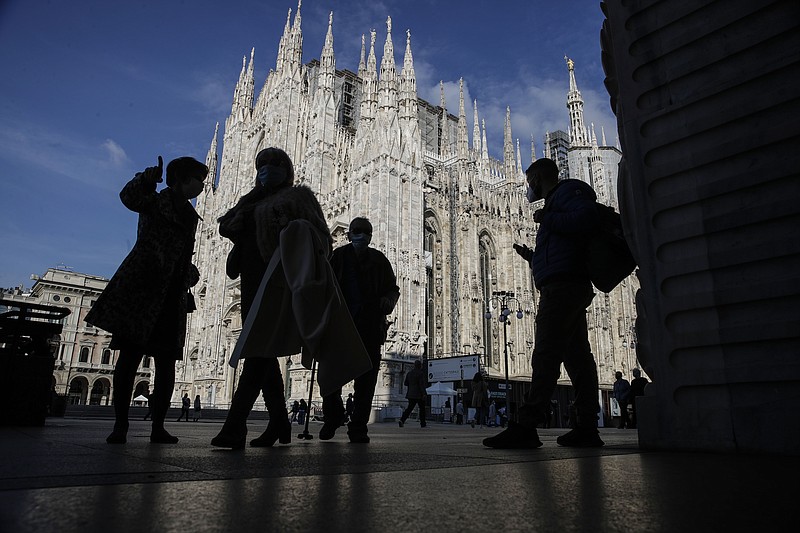MILAN (AP) - Doctors are warning Europe is at a turning point as the coronavirus surges back across the continent, including among vulnerable people, and governments try to impose restrictions without locking whole economies down.
With newly confirmed cases reaching records, the World Health Organization warned Friday intensive care units in a number of European cities could reach maximum capacity in the coming weeks.
In response to the surge, the Czech Republic has shut schools and is building a field hospital, Poland has limited restaurant hours and closed gyms and schools, and France is planning a 9 p.m. curfew in Paris and other big cities. In Britain, authorities are closing pubs and bars in areas in the country's north, while putting limits on socializing in London and other parts of the country.
Europe is not alone in seeing a resurgence. In the United States, new cases per day are on the rise in 44 states, and deaths per day are climbing in 30.
"If we don't get a handle on this, we run the risk of getting into a situation that's harder to control," Bertrand Levrat, the head of Switzerland's biggest hospital complex, told the Associated Press. "We are really at a turning point - things can go both ways."
But while officials are sounding the alarm on rising cases, they are also wary of imposing the stricter nationwide lockdowns that devastated their economies this spring. Instead, they are trying more targeted restrictions.
France is deploying 12,000 extra police to enforce its new curfew; tonight will be the first time establishments will be forced to close at 9 p.m. Restaurants, cinemas and theaters are trying to figure out how can survive the forced early closures.
One movie theater chain will start opening at 8 a.m. in hopes of making up evening losses. Since Paris restaurants generally open at 7 or 7:30 p.m. for dinner, some might close altogether because it no longer makes financial sense to stay open for such a short shift.
"The French culture world isn't invincible, it needs help," author and filmmaker Yoann Sfar, who has a new movie coming out, said Friday on RTL radio.
Italy, the first country outside of Asia to detect local transmission of the virus, has banned pickup sports and public gatherings after health officials said the resurgence had reached "an acute phase" following a period of relative grace after its particularly strict lockdown.
The governor of Campania, which was mostly spared in the spring but is seeing infections skyrocket, urged quick action, noting the area around Naples is the most densely populated in the country.
"Half measures are not worth anything anymore," Vincenzo de Luca said in a Facebook video. He already announced the closure of schools for the rest of the month, against the wishes of Rome.
Massimo Galli, the director of infectious diseases at Milan's Luigi Sacco hospital, said Italy's surge is not the result of record testing, as policy makers have suggested, but a sign of a real return among the population most at risk of developing serious illness if infected.
That is a worrying trend since a tide of serious cases has the potential to swamp hospitals, and it's one that can be seen in other countries on the continent as many see even higher numbers than Italy.
France, Spain and Britain recorded more than 300 infections per 100,000 residents over the past two weeks, compared to Italy's quickening, but relatively low, 106.

